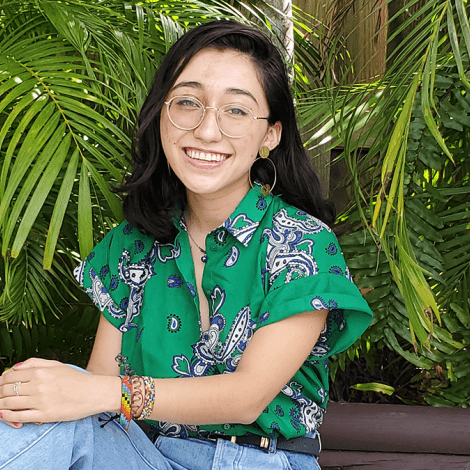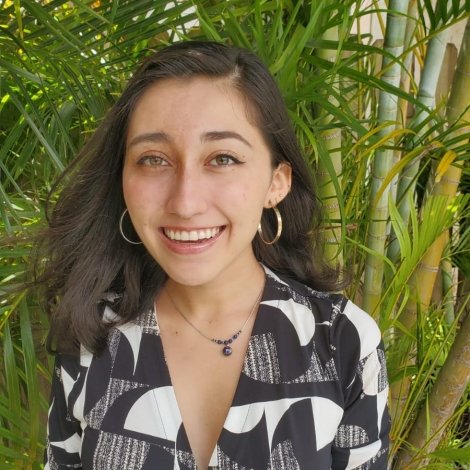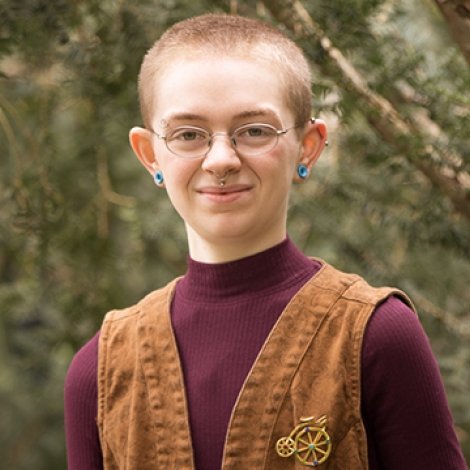| ANTHR-216WC | Special Topics in Anthropology: 'Writing Capitalism's Ruins' | 4 |
| ANTHR-342 | Science as Culture | 4 |
| ANTHR-352 | Digital Cultures | 4 |
| ARTST-380TX | Advanced Topics in Art Studio: 'Abolition and Radical Textiles' | 4 |
| CRPE-205 | Foundations in Critical Social Thought | 4 |
| CRPE-208 | Introduction to Twentieth-Century Critical Race Theory | 4 |
| CRPE-228 | Visualizing Immigrant Narratives: Migration in Film | 4 |
| CRPE-239 | Latinx Urbanism | 4 |
| CRPE-240FD | Intermediate Topics: 'U.S. Latinx Foodways' | 4 |
| CRPE-244 | The Historical-Grammar of Black Feminist Thought Across the Caribbean and the Americas | 4 |
| CRPE-254 | Nueva York | 4 |
| CRPE-256 | Trap Doors and Glittering Closets: Queer/Trans* of Color Politics of Recognition, Legibility, Visibility and Aesthetics | 4 |
| CRPE-257 | Transforming Justice and Practicing Truth to Power: Critical Methodologies and Methods in Community Participatory Action Research and Accountability | 4 |
| CRPE-261 | Race, Racism, and Power | 4 |
| CRPE-308 | Luminous Darkness: African American Social Thought After DuBois | 4 |
| CRPE-323 | Latina Feminism(s) | 4 |
| CRPE-339 | Abolitionist Dreams And Everyday Resistance: Freedom Memoirs, Struggles, and Decolonizing Justice | 4 |
| CRPE-352 | Latina/o/x Studies in Action | 4 |
| CRPE-356 | Latinas/os/x and Housing: Mi Casa Is Not Su Casa | 4 |
| CRPE-364 | Critical Refugee Studies | 4 |
| CRPE-366 | Disposable People: A History of Deportation | 4 |
| CRPE-371 | Free Them All: Abolition Feminism and Anticarceral Action Research | 4 |
| CRPE-372 | Transforming Harm and Mutual Aid: A Transformative Justice Lab | 4 |
| CRPE-373 | Abolition and Radical Textiles | 4 |
| CRPE-374 | Latinx Immigration | 4 |
| CRPE-392 | Senior Seminar | 4 |
| ECON-210 | Marxian Economic Theory | 4 |
| ECON-306 | Political Economy of Inequality | 4 |
| ECON-349EC | Advanced Topics in Economics: 'Analysis of Empire of Cotton' | 4 |
| ENGL-257 | Survey of African American Literature | 4 |
| ENGL-274 | Introduction to Asian American Literature | 4 |
| ENGL-280 | Literary and Cultural Theory | 4 |
| ENGL-325 | Victorian Literature and Visual Culture | 4 |
| ENGL-334BG | Asian American Film and Visual Culture: 'Beyond Geishas and Kung Fu Masters' | 4 |
| ENGL-338 | Aesthetics of Racial Capitalism | 4 |
| ENGL-350AB | Topics in African American Literature: 'Abolition and Climate Change' | 4 |
| ENGL-350AT | Topics in African American Literature: 'Race and the Aesthetics of Taste' | 4 |
| ENGL-368 | Shapeshifting Through the Nineteenth Century and Beyond | 4 |
| ENGL-382AN | Advanced Topics in English: 'American Animality' | 4 |
| ENGL-382MX | Advanced Topics in English: 'I Would Prefer Not To: Marxism and Early American Literature' | 4 |
| ENGL-382PH | Advanced Topics in English: 'Linguistic Ideology, Power, and Hope' | 4 |
| ENGL-389 | Revolution and Change in the Age of Necropolitics | 4 |
| ENVST-150DV | Introductory Topics in Environmental Studies: 'Introduction to the Histories and Theories of Development' | 4 |
| ENVST-210 | Political Ecology | 4 |
| ENVST-321CP | Conference Courses in Environmental Studies: 'Political Economy of the Environment: Capitalism and Climate Change' | 4 |
| FMT-330PA | Advanced Courses in History and Theory: 'Natural's Not in It: Pedro Almodóvar' | 4 |
| FMT-330RR | Advanced Courses in History and Theory: 'Anti-Fascism in Film: Reel Revolutions' | 4 |
| GEOG-206 | Political Geography | 4 |
| GEOG-331 | Water, People, and Politics in the Anthropocene | 4 |
| GNDST-122 | Who Makes Your Clothes? Gender and Labor in the Global Apparel Industry | 4 |
| GNDST-204TJ | Women and Gender in the Study of Culture: 'Transforming Justice and Practicing Truth to Power: Critical Methodologies and Methods in Community Participatory Action Research and Accountability' | 4 |
| GNDST-206BF | Women and Gender in History: 'The Historical-Grammar of Black Feminist Thought Across the Caribbean and the Americas' | 4 |
| GNDST-206US | Women and Gender in the Study of History: 'U.S. Women's History since 1890' | 4 |
| GNDST-210SL | Women and Gender in Philosophy and Religion: 'Women and Gender in Islam' | 4 |
| GNDST-241PH | Women and Gender in Science: 'Pharmocracy: Empire by Molecular Means' | 4 |
| GNDST-241RA | Women and Gender in Science: 'Rethinking Aids' | 4 |
| GNDST-333EC | Advanced Seminar: 'Gender and Economic Development in the Global South' | 4 |
| GNDST-333EM | Advanced Seminar: 'Flesh and Blood: Naturecultural Embodiments' | 4 |
| GNDST-333MS | Advanced Seminar: 'Multi-Species Justice? Entangled Lives and Human Power' | 4 |
| GNDST-333PA | Advanced Seminar: 'Natural's Not in It: Pedro Almodóvar' | 4 |
| GNDST-333TH | Advanced Seminar: 'Transforming Harm and Mutual Aid: A Transformative Justice Lab' | 4 |
| GNDST-333TX | Advanced Seminar: 'Abolition and Radical Textiles' | 4 |
| GNDST-392 | Senior Seminar | 4 |
| GRMST-205 | Decentering Europe: An Introduction to Critical European Studies | 4 |
| GRMST-231YN | Topics in German and European Studies In a Global Context: 'Yiddish Nation: Language as Homeland' | 4 |
| HIST-141 | Introduction to Modern African History | 4 |
| HIST-276 | U.S. Women's History Since 1890 | 4 |
| HIST-277 | History of Energy | 4 |
| HIST-279 | Modern Civil Rights Movement | 4 |
| HIST-357 | History of British Capitalism | 4 |
| JWST-269 | Citizens and Subjects: Jews in the Modern World | 4 |
| LATAM-287DE | Topics in Latin American Studies: 'Decolonizing Development' | 4 |
| LATAM-287FM | Topics in Latin American Studies: 'Frames of Mind: Tracking Power/Knowledge' | 4 |
| POLIT-234 | Black Metropolis: From MLK to Obama | 4 |
| POLIT-252 | Urban Politics | 4 |
| POLIT-355 | Race and Housing | 4 |
| POLIT-387PD | Advanced Topics in Politics: 'Other Political Dreams' | 4 |
| PSYCH-213 | Psychology of Racism | 4 |
| RELIG-181 | Introduction to African Diaspora Religions | 4 |
| RELIG-207 | Women and Gender in Islam | 4 |
| RELIG-209 | Disability and Religion | 4 |
| RELIG-225NR | Topics in Religion: 'Reimagining American Religious History: Race, Gender, and Alterity' | 4 |
| RELIG-248 | Islam in America: From Slavery to the "Muslim Ban | 4 |
| RELIG-267 | Buddhist Ethics | 4 |
| RELIG-269 | Citizens and Subjects: Jews in the Modern World | 4 |
| RELIG-331AF | Advanced Topics in Religion: 'African American Spiritualities of Dissent' | 4 |
| RELIG-352 | Body and Gender in Religious Traditions | 4 |
| SOCI-214 | Race in America: Inequality, Immigration, and Other Issues | 4 |
| SOCI-316RM | Special Topics in Sociology: 'Consumer Culture: Race in the Marketplace' | 4 |
| SPAN-230HY | Identities & Intersections: An Introduction: 'Hybrid Identities of the Spanish-Speaking World' | 4 |
| SPAN-250AT | Concepts and Practices of Power: 'The Agency of Things: Material Culture of Latin America, Spain, and the U.S. Border' | 4 |
| SPAN-340PA | Advanced Studies in Visual Cultures: 'Natural's Not in It: Pedro Almodóvar' | 4 |
| SPAN-340RR | Advanced Studies in Visual Cultures: 'Anti-Fascism in Film: Reel Revolutions' | 4 |


